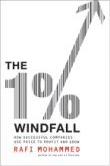The Great Trailing Digits Conspiracy
I was recently discussing the Archer Daniels antitrust case with a fellow economist and he mentioned the trailing digits conspiracy. After researching the facts, the case is so fascinating that I had to share the details with you.
Peter Crampton and Jesse Schwartz wrote a great article on the 1996 – 1997 airwave spectrum auctions (“Collusive Bidding in the FCC Spectrum Auctions,” Journal of Regulatory Economics, May 2000). The FCC was auctioning off frequency bands in markets across the country for wireless communication services. The auctions were being held simultaneously (Boston was being auctioned off at the same time as Chicago, for instance) and the bidding was open (everyone knew the price that others were offering and the bidding continued in each market until no one would pay a higher price).
What became interesting is that while the bids were often in the millions of dollars, many bids were very exacting: $1,500,264 for instance. The FCC and Department of Justice observed that bidders were using the last three digits of a bid (the trailing digits) to specify a market number (which, coincidentally, is signified by a 3 digit number). Crampton and Schwartz highlight an example where one company started aggressively bidding on a market of interest to another company. These bids ended in the three digits “264,” the market number of Lubbock, Texas. After a detailed analysis, the authors concluded that by using the trailing digits of 264, the company was signaling to the other to stay away from Lubbock or else face increased price competition in markets that were important to them. Bidders were allowed to withdraw bids – so they were able to submit a retaliatory bid – get the message across with trailing digits – and then not be on the hook for the higher price.
The authors’ analyses and results were surprising. They found that 40% of the available spectrum was won by bidders that had engaged in trailing digits bidding. In addition, on certain types of licenses (D and E blocks), bidders that used trailing digits paid 43% less “per person covered” compared to areas where trailing digits were not used by bidders. This big price differential could reflect the effects of collusion.
I spoke with Peter Crampton yesterday and asked the obvious question, “so what happened after this was all discovered?” Most important, the FCC has specified that the last three digits of a bid must now be “000.” In addition, several companies were fined for using trailing digits. Disappointingly, however, these fines were later overturned due to selective prosecution (not every company that used trailing digits was fined).
It’s shocking that companies could so brazenly collude (no secret conversations – just open signaling that left a paper trail) and that a bigger deal wasn’t made in the media about these anticompetitive actions.
I promise to return to legal methods to price for profits and growth next week.




